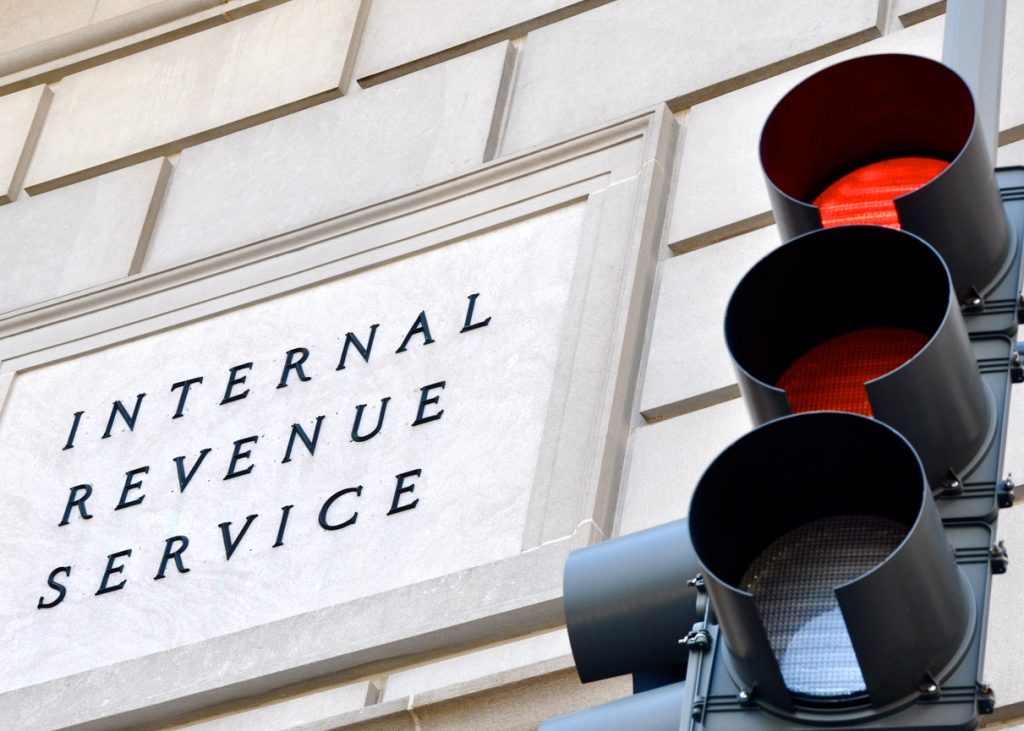Filing Your Taxes Later Could Boost Your Refund—But the IRS Warns Against It

Thanks to modern technology that helps us organize our information and file online, it’s never been easier to submit taxes well ahead of the April deadline. But even with these helpful tools, some people can take extra time getting everything together so that they’re not setting themselves up for a time-consuming correction in the future. However, if you’re holding out on filing your taxes until later to potentially boost your refunds, you might want to think again. Read on to see why the IRS warns against putting it off and what it could mean for you this year.
RELATED: Accountants Reveal “Surprise” Tax Errors That Cost You Big and How to Avoid Them.
The child tax credit can play a significant part in what you owe the IRS.

Part of what can make filling out forms more complicated each year are the many possible deductions and credits that can affect your final total. The child tax credit is one of these. It applies to people who have dependent children under the age of 17 in their care, according to the IRS. In addition to direct offspring, this also includes siblings, half-siblings, stepsiblings, and grandchildren who live with you for more than half of the year and provide no more than half of their own financial support.
The credit is still limited in other ways, including to those who make less than $200,000 a year for single filers (or $400,000 for joint filings). In some cases, higher earners can claim a partial credit, per the agency.
RELATED: Ex-IRS Worker Warns TurboTax Is “Trying to Make Your Taxes Harder.”
Some taxpayers are opting to hold off on filing amid some potential changes to the law.

But this year, a potential amendment to the credit is causing some confusion. Even as taxpayers have started sending in their tax filings, Congress is still hammering out the details of a $78 billion tax package that could affect what they get back, CNBC reports.
The legislation in question would affect the 2023 tax season, boosting the credit and bulking up returns for some eligible taxpayers. The top refund amount would jump from $1,600 to $1,800 for the current filing and increase again to $1,900 and $2,000 in the following two years, according to NerdWallet.
Because of the potential changes, some experts have said the political gridlock is enough reason to wait to send your information to the IRS.
“It would be a waste of time to file your return and then find out you’re entitled to a bigger tax credit and have to amend,” Bill Smith, national director of tax technical services at financial services firm CBIZ MHM, told CNBC.
RELATED: IRS Warns 20% of Taxpayers Don’t Claim Major Refund Credit—Are You Eligible?
The IRS says the current stalemate won’t affect taxpayers getting what they’re owed.

While the idea of going back to deal with your taxes a second time may not be enticing, that may not be a concern. Officials with the tax agency are still urging the public to send along their information once it’s been put together.
“We urge and encourage taxpayers to file when they’re ready,” IRS Commissioner Danny Werfel told reporters during a call with reporters on Jan. 26. “Don’t wait on Congress.”
He went on to explain that whatever legislation passes also won’t force those who’ve already filed to make serious amendments.
“If there’s a change that impacts your return, we will make the change, and we will send you the update—whether it’s an additional refund or otherwise—without you having to take additional steps,” Werfel said during the call.
Experts say there are other reasons to get your filing in as soon as it’s ready.

Even though it does seem like a tall order, some experts stress that the agency will make good on its promise to get the extra refund into taxpayers’ pockets as quickly as possible.
“If [the IRS] says it can do it, it probably can do it,” Robert Weinberger, fellow at the Urban-Brookings Tax Policy Center, told Yahoo Finance. “There are a whole bunch of people who like to play gotcha with the IRS. Anyone running the IRS would be well advised to be cautious about promising more than they can deliver.”
But even if you don’t expect to be affected by the changes, there are other reasons to file your taxes sooner rather than later. That’s because even carefully prepared filings can still get flagged for errors or further questioning, which can tie up the time it takes to receive your refund.
“Once you’re relatively certain that you have all of your tax documents, file as soon as you can so that you can start investing your money,” Eric Bronnenkant, head of tax at online financial adviser Betterment, recently told Fox Business. “Because, in general, the IRS doesn’t pay you interest on your refunds. So getting that money in your hands sooner is better for sure.”
Best Life offers the most up-to-date financial information from top experts and the latest news and research, but our content is not meant to be a substitute for professional guidance. When it comes to the money you’re spending, saving, or investing, always consult your financial advisor directly.
- Source: IRS: Child Tax Credit